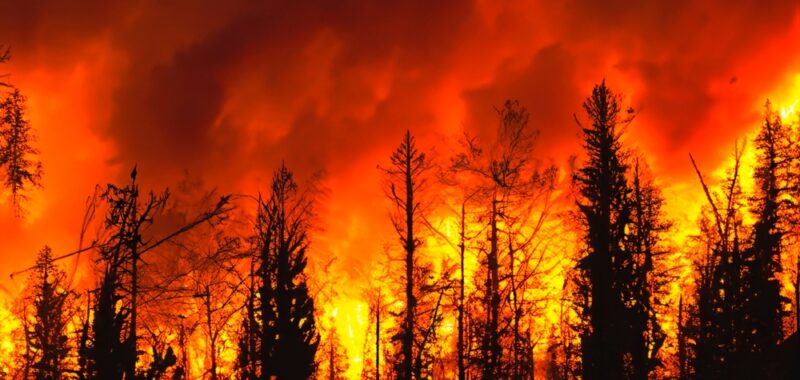This wasn’t the article I had initially planned to publish. I had intended to discuss the health care system, calling it a “proverbial dumpster fire.” But in a year marked by relentless challenges, the metaphor feels too raw, too real, so I will save that for a later date. Parts of the country are literally on fire, with Los Angeles and nearby areas battling raging infernos that have torn families apart. At the same time, recently, another region has been enduring record-breaking subzero temperatures, with states like Georgia and Texas trapped in an unforgiving freeze. It feels like the planet itself is pulling in opposite directions, and I ask: What is causing this?
Grief is in the air, hard to shake off. Losing a home isn’t just about bricks and walls—it’s losing the place where you felt safe, where your memories lived, where your dreams were built. You can’t put a price on that kind of loss, and no timeline for rebuilding can make it right. It tears at you, piece by piece, and takes a long, long time to begin healing. And for those who have lost loved ones, the depth of grief is even harder to comprehend.
A friend of mine and her family lost their home in the fires. Seeing their heartbreak firsthand has left me shaken. To those who have lost everything—to those who are grieving, whether near or far—I grieve with you. Your pain deserves to be acknowledged, not dismissed with platitudes of “staying positive” or “moving forward.” Toxic positivity doesn’t heal; it only silences the depth of human emotion.
Grief is a slow burn, much like fires. Shock hits first, and then a gnawing realization sets in long after the news cycles move on. It’s essential that we, as a global community, resist the urge to look away once the headlines fade.
As health care providers, we know that grief doesn’t have a timetable. Healing takes time, just like caring for a wound that can’t be rushed. And sometimes, the demands of our work feel like wildfire—consuming everything in its path—our energy, our compassion, and our strength—until we’re left feeling drained and empty.
This leads me to a broader question: Why are we experiencing such extremes? Fires on one coast, icy devastation on the other—what drives these disasters? As someone with an inquisitive mind, I feel compelled to dig deeper. Science teaches us that for every action, there is an equal and opposite reaction. Could the escalation of these events be nature’s reaction to years of human impact?
The answer lies, at least in part, with climate change. This isn’t a political statement—it’s a scientific reality. In a previous article, I wrote about the link between climate change and burnout. Both are slow-moving crises that accumulate over time, creating more significant ripple effects than we anticipate. If this year’s disasters aren’t a wake-up call, I don’t know what will be.
For us in health care, the parallels are hard to ignore. Just as we advocate for preventative care to address health issues before they become crises, we must advocate for proactive action against climate change. The physical and mental health toll of these disasters—displacement, loss, and trauma—is already evident in our patients, and it will only worsen if we don’t act.
What can we do? First, we must become aware. We must recognize the pain. We must sit with the discomfort of what is unfolding. We must grieve alongside those who are grieving. Then, we must transform that grief into meaningful action. We cannot continue to view climate change—or systemic problems in health care—as issues belonging to others. Change begins with us—by making intentional daily choices and demanding systemic change from our leaders.
This year has starkly reminded us of our shared vulnerability and humanity. Yet, it has also highlighted our ability to persevere and act together. To those who have endured unimaginable loss, I see you, and my heart mourns with yours. To everyone else, I ask: Will we take these lessons to heart? Will we emerge stronger to rebuild and create a future where such tragedies are rare, not the norm?
Let us not let this moment pass without deep reflection. Let us honor the pain and channel it into driving meaningful change in our lives, our work, and the world we all share.
Tomi Mitchell is a board-certified family physician and certified health and wellness coach with extensive experience in clinical practice and holistic well-being. She is also an acclaimed international keynote speaker and a passionate advocate for mental health and physician well-being. She leverages over a decade of private practice experience to drive meaningful change.
Dr. Mitchell is the founder of Holistic Wellness Strategies, where she empowers individuals through comprehensive, evidence-based approaches to well-being. Her career is dedicated to transforming lives by addressing personal challenges and enhancing relationships with practical, holistic strategies.
Connect with her on Facebook, Instagram, and LinkedIn, and book a discovery call to explore how she can support your wellness journey. For those interested in purchasing her book, please click here for the payment link. Check out her YouTube channel for more insights and valuable content on mental health and well-being.


